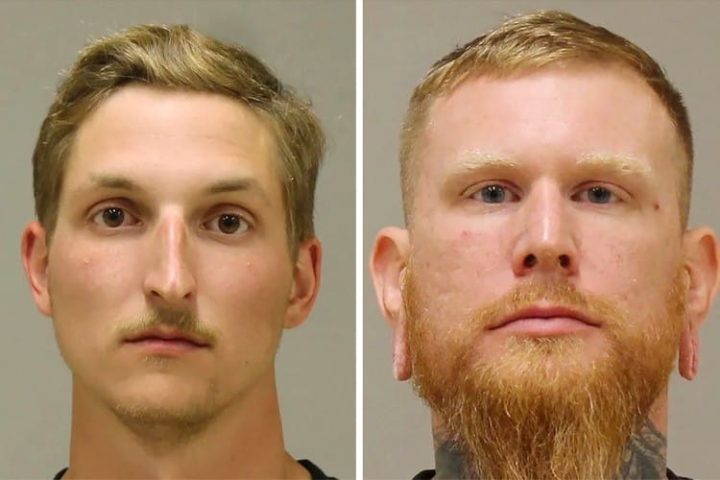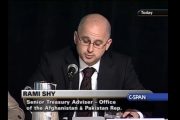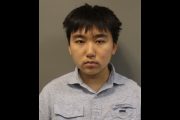
The acquittal of two men accused of plotting to kidnap leftist Michigan Governor Gretchen Whitmer, along with the hung jury in the case of two others, isn’t just a serious blow to the federal government’s theory in the case.
It also shows the danger of the government’s using informants and what appear to be provocateurs who create conspiracies in which Americans find themselves entrapped.
Forgetting that an innocent individual might find himself as a defendant in a terror trial, the government’s heavy-handed tactics might lead a jury to acquit a defendant who was, indeed, a mad bomber, or, as in this case, someone plotting to kidnap a high official.
Retrial of Two Coming
The bizarre story of the Whitmer Kidnap Plot began almost two years ago, federal prosecutors alleged, when so-called right-wing militia and anti-government terrorists cooked up a conspiracy to kidnap the governor from her vacation home.
The reason to kidnap Whitmer: A committed Branch Covidian, the leftist governor locked down her state during The Virus Panic as if she read an instruction manual from Fidel Castro.
Prosecutors charged six men, two of whom pleaded guilty and testified for prosecutors.
Nonetheless, the government’s case went nowhere with the jury.
On Friday, the jury acquitted Daniel Harris and Brandon Caserta on four counts of kidnapping conspiracy.
Outside the courthouse, the Detroit Free Press reported, Caserta’s attorney, Michael Hills, said the jury didn’t buy the government’s case because it was obvious entrapment:
“What the FBI did was unconscionable,” Caserta’s lawyer, Michael Hills, said outside the courthouse. He has long argued that his client and the others were entrapped by rogue FBI informants and agents, including one who ran a cybersecurity company while investigating the case.
“To me, this was a signal,” Hills said of the verdict. “A rogue FBI agent trying to line his own pockets with his own cybersecurity company, pushing a conspiracy that just never was, never was going to be. Our governor was never in any danger. And I think the jury — they didn’t get all of it — but they smelled enough of it.”
The jury didn’t reach a verdict on charges against the other two defendants, Adam Fox and Barry Croft. Prosecutors will retry them, and they’ll be stuck in jail until that happens.
Christopher Gibbons, Fox’s attorney, said the obvious. The acquittals signaled the jury’s skepticism. “I think that the trial here demonstrated that there’s some serious shortcomings in the case,” Gibbons said. “Obviously, with acquittals occurring with Mr. Caserta and Mr. Harris, it says a lot about what’s going on in the case and in the proofs.”
“During trial, Gibbons pushed back on the government’s assertion that Fox was the ringleader in the alleged plot,” the Free Press observed:
In his closing argument, Gibbons painted Fox as a misfit who couldn’t stop smoking pot, and whose only friends were FBI undercover agents and informants who were spying on him.
“Adam is disappointed that he’s going to be detained a bit longer, but we’re waiting for a second trial and we’ll eventually get what we want — which is the truth and justice,” Gibbons said.…
Veteran defense attorney Mike Rataj, who was part of the defense team in the 2012 Hutaree militia trial — which also was a failure for the government — believes the credibility of the undercover informants and FBI agents was a key issue at trial. The location of the trial and where the jurors came from may have also played a role, he said.
It was tried in Grand Rapids, with many of the jurors coming from northern Michigan.
“Some of these jurors come from rural places, where people are very distrustful of the government,” Rataj said. “I think it’s safe to assume the jurors did not believe the government undercovers.”
No one seriously considering such an operation would rely on a stoner — not exactly a candidate for the Special Forces — to help plan and carry out the kidnapping of a major government official.
Crazy Plan
The difficulty for juries in these cases is trying to determine whether government informants entrapped defendants into committing a crime they would otherwise not have committed, or plotting the same. Worse still is the possibility that the government framed a defendant for a crime he did not commit. Defense attorneys argued that an undercover operative “drove the suspects to a warehouse in Ypsilanti, tricking them into thinking they were going for beers and wings and to pick up military gear, but got them arrested instead,” as the Free Press explained.
The entrapment of Randy Weaver on a firearms charge and subsequent siege of his homestead at Ruby Ridge, Idaho, which led to a deadly shootout, was another major case that harmed the credibility of the federal government.
Reason for the raid: Weaver failed to appear in court on a charge that he sold two illegal sawed-off shotguns to an undercover federal agent.
Result: Federal agents killed Weaver’s wife and son. Weaver was acquitted of all charges in connection with the shootout and won $3.1 million in a civil lawsuit against the government.



